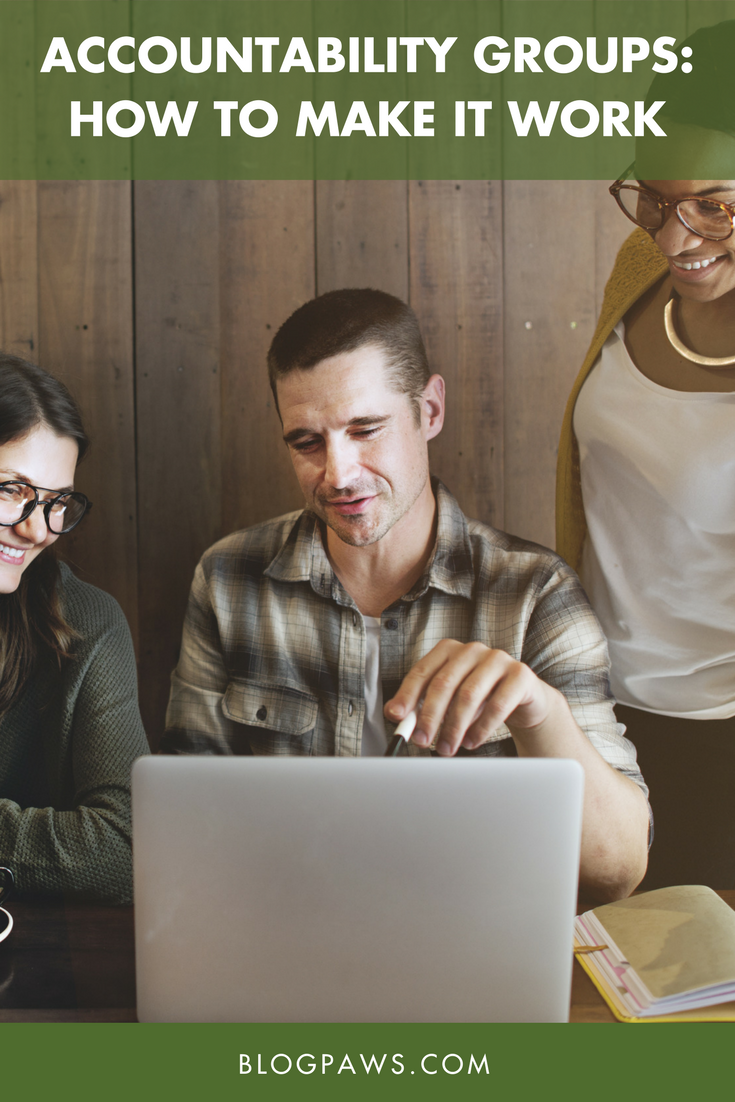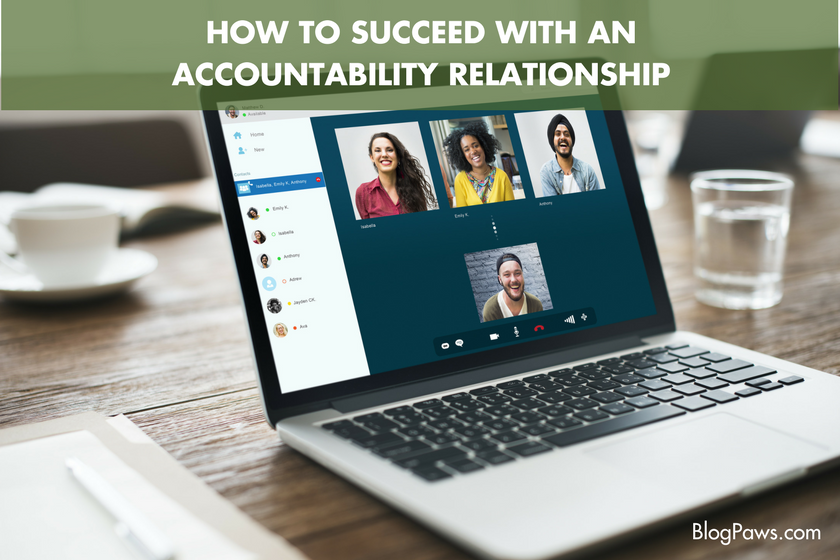How to Succeed with an Accountability Relationship
What does it mean to be accountable?
How can you create an accountability relationship that helps you succeed? Should you find an accountability partner? Or perhaps join a group? Or is a mastermind right for you?
In last week’s Facebook Live, Chloe DiVita, BlogPaws’ COE, tackled these questions and more. Her video, Accountability relationships and you: how to succeed, covered everything from how to find the right people for your group (at 1:28) to establishing trust and confidentiality (22:10).
Here are 10 tips on how to form and maximize an accountability relationship:
- Find the right people. Before you commit, share what you hope to get out of the meeting. Make sure each person feels like they can offer the support needed.
- Make a commitment statement for trust/confidentiality. Big shout-out to Alison Reder for that important point! Consider incorporating trust into your bylaws (check out minute 6:30 for this critical tip).
- Determine the meeting frequency and length. This is often driven by how many people are meeting. Chloe recommends using Doodle.com for scheduling.
- Determine the expectations. How do you handle when someone can’t make it? How many “misses” warrant a discussion around whether there is still value to keep that person in the group. Nothing is worse than feeling like you are giving but not receiving.
- Set the structure. Three suggestions she shared (Get the full info at minute 4:16):
- Split time evenly
- Have a “hot seat”
- Allow the first five minutes for sharing how much time everyone needs and divide from there
- Decide who the moderator is. It can be a shared responsibility.
- Create “bylaws” for the group. Make it a shared, living doc.
- State the kind of feedback you’re looking for. Make the most of your turn by being clear on what you need.
- Offer the feedback being asked for in point 8. And if you have feedback outside of that, ask if it’s okay to offer it before doing so.
- Make a commitment. At the end of the session, commit to what you will accomplish before the next meeting.
- Bonus tip: Record the meeting or take notes! (11:12 for tips and tools)
Be sure to watch the video to get the full story! The comments are full of helpful tips and hands-on experience, too, so read through those as you watch. Don’t miss the tip shared from Elizabeth Keene at 24:15.
If you have any questions on how to structure an accountability relationship, or want more information about the logistics of running a group, leave a comment here so Chloe can share her expertise. If you’re in a group and need additional support or advice on how to handle specific situations, share those here, too, so we can provide that needed support.
Images: Rawpixel.com/Shutterstock.com






